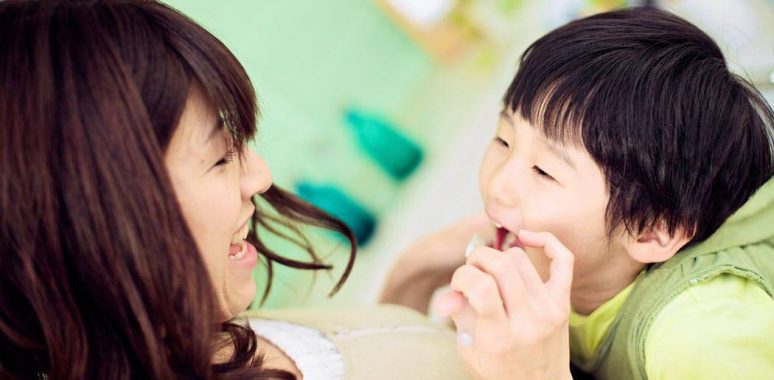
Having a tooth pulled out or extracted has been one of the greatest fears for most people especially when they have had bad experiences or have heard of one from family members and friends. What more so for a child when nature has to take its course as the child grows and need to have his or her loose baby teeth fall out or manually removed as part of the growth process. The loose baby teeth are removed to make way for the new succeeding permanent teeth.
It becomes even more frightening when adults playfully or mischievously use threatening remarks like, “We will pull out all your teeth if you are naughty or don’t eat your food!” on a child. For a child when the actual situation of having to do a tooth removal do arise, the recall of such innocent threats becomes a reality and creates tremendous fear.
Normally as the child grows and develops, the baby teeth do slowly become loose as the succeeding permanent teeth makes their way up and plays a role in the process. They gently push the baby teeth from the roots below eroding them (resorption), until the baby teeth are loose enough and are ready to fall out by themselves. As dentists we love to see the baby teeth taking its natural course and falling out by themselves. This then becomes an exciting experience and event for the child. Only under special circumstances where the loosen baby teeth causes pain and hurts the child upon chewing, or when the baby teeth are firm and blocking the growth of the permanent tooth, do we recommend the removal of the baby tooth. The dentist weighs a lot of factors and options during his decision making process on the most beneficial outcome for the child.
However, it is a well- known fact, that a child with a loose tooth would cause a lot of excitement amongst the family members especially the uncles, aunts and grandparents. They are somehow “paranoid of loose teeth and would be itching to pull it out for the child.” They will find ways for an opportunity to trick the child to pull out the loose tooth. A common practice is to pretend to look at the loose tooth and then suddenly grab and yank it out. Another common home technique is to tie a thread or dental floss to the tooth and yank it out. I have had experiences of children developing a tremendous phobia for the dental floss once they have experienced its use in such a manner on their teeth.
Most adults do not realise that although the baby tooth appear to be very loose, it is still attached to the gums which has a tremendous amount of attachment and pain fibres or nerves. The “forceful tug” with the fingers or thread, tears the tooth from gums and causes intense pain and bleeding. This is indeed a most unpleasant and fearful experience for the child. I have always advised parents not to allow any adults in the family to attempt such mean tricks on the child as they cause permanent fear in a child about dental care.
Always consult a dentist and allow the dentist with his proper tools and training to manage the child and do the job so that it becomes a “painless and pleasant experience.” So, when your child have a loose tooth, take him or her to a dentist. Through examination and assessment, your child can have a pleasant experience. This also prevents fear of the dentist from developing for the rest of his /her life. If parents are ignorant and try “DIY” ways you may end up with a child growing up with fear and numerous related problems.
There is the belief that loose baby teeth must be immediately extracted otherwise, the permanent teeth will be crooked. This is not true as most of the time, crowding of the permanent teeth is caused more often by genetic factors like inheriting large teeth from one parent and a small jaw from the other. In such cases whether the loose baby teeth are taken out early or later, crowded or crooked teeth will still occur.
Loose teeth especially the front ones do sometimes get dislodged through accidental falls, when they are knocked out. They can also fall out during a meal or when munching on hard food and fruits. These baby teeth that are knocked out will have short, resorbed roots as they are about to fall out. Although parents sometimes fear that the roots are broken and are left behind in the gum, this is not the case. We do encourage children who have loose teeth to munch on fruits and hard foods or tit-bits.
Children are encouraged to also play a big role in assisting their loose teeth to fall out. We instruct and encourage them to use their fingers or tongue to “rock and roll” the loose teeth a couple of times a day. This helps to loosen the baby teeth further so as to dislodge them. It’s a painless process. However, sometimes it works and other times not.
In conclusion, a child having loose teeth and their removal is all part and parcel of their growing up process. Remember not to try “quickie fixes” as the process can hurt them more than you know. Such hurt can and do last longer mentally than we realise.
Author: Dr Lim Swee Teck
